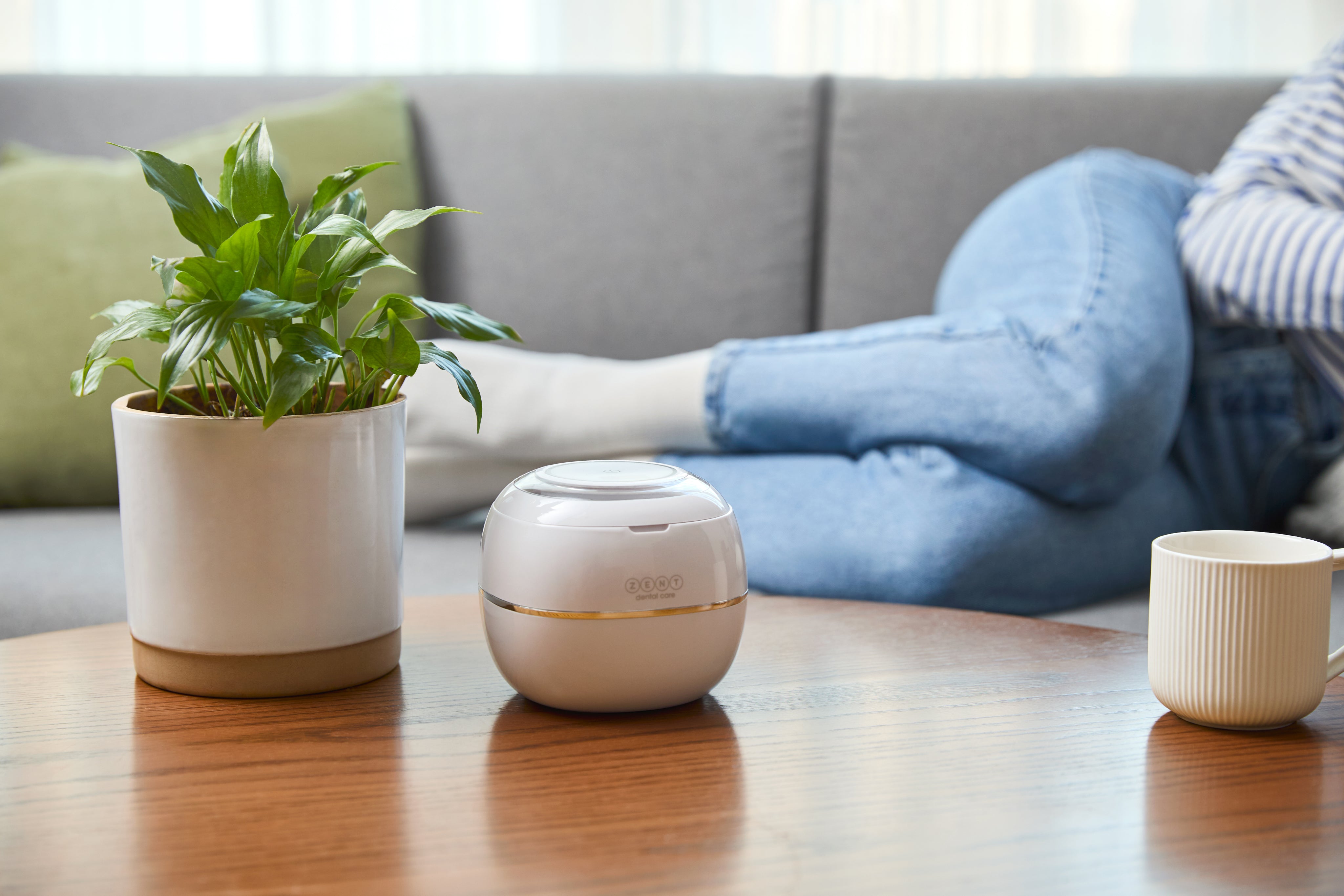Tartar on dentures is a problem that can affect not only the aesthetics of your smile but also your oral health. Improperly cared-for dentures become a breeding ground for bacteria, which can lead to unpleasant health consequences. In our article, we present effective methods for removing tartar from dentures, discuss the causes of its formation, and introduce products that help keep dentures in excellent condition. You will also learn how to prevent tartar buildup and what the best care practices are.
The most important information you will read in our text:
- Daily cleaning of dentures helps prevent tartar buildup,
- ZENT ultrasonic cleaner ZENT is the fastest and most effective way to clean dentures from tartar,
- Using appropriate cleaning agents, such as tablets and liquids for dentures, helps keep the denture clean,
- A proper diet and oral hygiene help prevent tartar buildup on dentures.
Causes of tartar buildup on dentures
Tartar is a hard deposit that forms as a result of the mineralization of dental plaque. This process begins with the accumulation of bacteria, food debris, and saliva, which create a soft plaque. If it is not regularly removed, it transforms into hard tartar. Dentures are particularly prone to tartar buildup due to their structure and the material they are made of. The porosity of the material makes it easy for bacteria and food debris to adhere to the denture surface.

Factors affecting the rate of tartar buildup include a diet rich in sugars and carbohydrates, improper oral hygiene, and water hardness. People wearing dental prostheses should pay special attention to cleaning the denture from tartar and regular visits to the dentist, to prevent the formation of deposits.
Effective methods for removing tartar from a dental prosthesis
How to remove tartar from a dental prosthesis? There are several methods that can be used to effectively get rid of unsightly deposits and tartar from dentures.
- Manual tartar removal methods. Basic methods include brushing the denture using a soft brush and toothpaste specially designed for dentures. Regular brushing helps remove soft dental plaque before it turns into tartar.
- Chemical cleaning agents for dentures. Various chemical agents are available, such as cleaning tablets and denture liquids. Cleaning tablets, when dissolved in water, create a solution that effectively removes deposits and bacteria. Denture liquids work on a similar principle, helping to maintain denture hygiene.
- Ultrasonic technologies. Ultrasonic denture cleaner is one of the most advanced solutions. The ZENT cleaner uses ultrasonic waves to effectively remove tartar and other deposits formed after meals. It is a fast and efficient method that ensures thorough cleaning of the dental prosthesis from tartar.

How to prevent tartar buildup on dentures?
Preventing tartar buildup on dentures is extremely important for oral health and the longevity of the denture. How to clean dentures to avoid tartar buildup?
- Daily hygiene routine: regular, thorough cleaning of the denture after every meal helps remove food residues and bacteria. When using a denture cleaner, the entire cleaning process takes only 5 minutes.
- Recommended products for daily care: Using appropriate products, such as cleaning tablets and denture solutions, helps keep the denture clean and prevents deposits. However, when using a denture cleaner, no additional agents are required besides water. Optionally, a cleaning tablet can be added, but it is not necessary.
- Regular dental check-ups: regular visits to the dentist are essential to professionally assess the condition of the denture and perform deep cleaning if necessary.

How often should you clean your denture to avoid tartar buildup?
Consistency is the most important factor in maintaining hygiene of removable dentures. The denture should be cleaned every day, preferably after every meal, because, just like natural teeth, bacteria and plaque accumulate on it. Neglect can lead to recurring oral inflammations, the appearance of ulcers, gum weakening, and in the case of partial dentures, deterioration of the health of the remaining natural teeth.

Proper denture hygiene is the key to oral health. Regular use of various cleaning methods—such as manual brushing, chemical cleaners, or ultrasonic cleaners—allows for effective removal of contaminants that lead to tartar buildup.
About the Author

Aleks Barszczewski is a graduate of Fordham University in New York, where he earned a Bachelor of Science degree in Information Systems. As an oral hygiene enthusiast and a patient using Invisalign aligners, Aleks combines his knowledge with experience to share practical tips for daily dental care. His blog posts are based on scientific research and personal experiences related to maintaining a healthy and beautiful smile.




